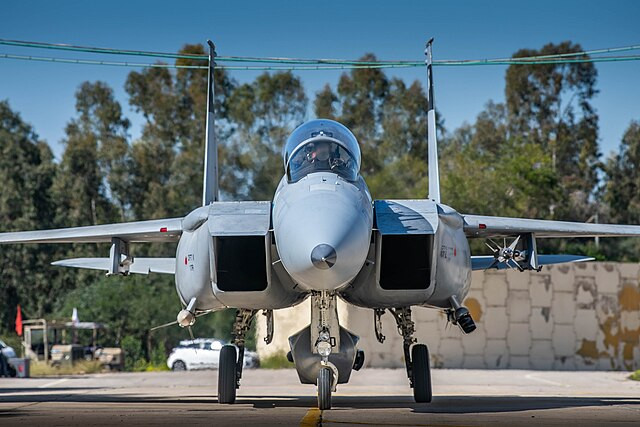In a significant escalation of Middle East tensions, Israel launched a series of retaliatory airstrikes on Iranian military targets early Saturday, responding to a barrage of ballistic missiles fired by Iran earlier this month. Explosions were reported in the vicinity of Tehran and Karaj, marking one of the most direct confrontations between the two regional adversaries in years.
According to a statement from the Israel Defense Forces (IDF), the strikes were a response to "months of continuous attacks" from Iran, which included direct missile strikes on Israel from Iranian soil. "The regime in Iran and its proxies in the region have been relentlessly attacking Israel...on seven fronts," the IDF said, affirming Israel's right to defend itself. These targeted strikes, the IDF stated, were focused on military installations and were designed to send a clear message to Tehran.
The U.S. government was notified in advance of the operation. Two U.S. defense officials confirmed to Fox News that the U.S. played no role in the Israeli strikes but had been briefed ahead of time. President Biden has been following the developments closely, and the National Security Council reiterated that Israel's actions were an exercise in self-defense. "We understand that Israel is conducting targeted strikes against military targets in Iran in response to Iran's ballistic missile attack," the council stated.
The strikes come amid rising violence across the region. Iran's October 1 missile barrage targeted Israel in what it called retaliation for the killing of senior Hezbollah and Hamas leaders earlier this year, including Yahya Sinwar, who was eliminated in Gaza by Israeli forces in October. While the October missile attack resulted in no casualties in Israel, the action was seen as a dangerous provocation, raising fears of a broader conflict in the region.
The situation has been tense since Hamas launched a large-scale attack on Israel on October 7, killing approximately 1,200 Israelis and taking 250 hostages. Israel has since been engaged in heavy fighting in Gaza and southern Lebanon, where Iranian-backed Hezbollah has been launching cross-border attacks.
Israeli Defense Minister Yoav Gallant previously vowed a "precise and deadly" response to Iran's missile aggression, and Israeli officials have been reviewing potential targets for weeks. In mid-October, reports suggested that Israel was considering striking Iran's nuclear and oil infrastructure, but after discussions with U.S. officials, these critical sites were reportedly excluded from the operation. Instead, Israel focused on military installations, seeking to avoid escalating the conflict further.
In Tehran, state media acknowledged explosions but offered little detail on the impact of the strikes. Iranian outlets downplayed the significance, with the Tasnim news agency claiming there had been no fires or explosions at key facilities such as Tehran's oil refineries. However, residents reported hearing at least seven explosions in the capital, with footage showing what appeared to be surface-to-air missiles engaging Israeli rockets.
The broader regional implications of the strikes are substantial. With U.S. officials already urging restraint from both sides, the latest flare-up risks dragging other actors in the region into the conflict. The U.S. has bolstered Israel's defense by deploying a Terminal High Altitude Area Defense (THAAD) missile system to protect against potential further missile attacks from Iran. Around 100 U.S. troops have been sent to assist in operating the system.
Meanwhile, in Gaza, Israeli airstrikes have continued to target Hamas positions, with Palestinian health officials reporting dozens of casualties, including many children. In northern Gaza, Israeli forces stormed Kamal Adwan Hospital, one of the last functioning medical centers, as they ramped up their offensive against Hamas. Aid organizations have been raising alarms over the deteriorating humanitarian conditions in Gaza, with food and medical supplies critically low.
In Lebanon, Israeli airstrikes have targeted Hezbollah-linked areas, with three journalists reportedly killed in one of the recent attacks. Hezbollah, an Iranian proxy, has been actively involved in the fighting against Israel since the Gaza conflict began.
Amid the escalating violence, U.S. Secretary of State Antony Blinken has returned from a tour of the Middle East, where he urged regional actors to avoid further escalating the conflict. Despite these efforts, the potential for a broader war remains high as both Israel and Iran signal they are prepared for continued conflict.
As the situation unfolds, analysts fear that a prolonged exchange of missile attacks and airstrikes could spiral into a wider regional war, drawing in multiple actors across the Middle East. With Israel and Iran entrenched in a bitter rivalry, the stakes of this confrontation continue to grow, placing the region on edge.




